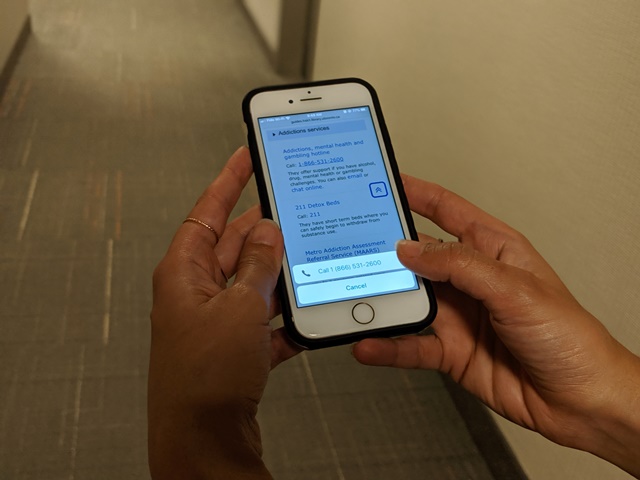
By Selma Al-Samarrai
Often, discharged patients, community members or visitors come to Unity Health Toronto staff asking for help to find social care such as crisis services, financial support, abuse resources, housing options or support for newcomers.
In response, the Patient and Family Education and Social Work teams at St. Michael’s Hospital created the new Community Resources for Patients and Families online tool, which lists numerous organizations across the Greater Toronto Area that provide these services, along with contact information.
We spoke to Lauren Massey, manager of Collaborative Practice and Education, and Tedi Brash, patient education specialist, who explained why this tool was developed and how they hope it will quickly and effectively help those in need.
Why did you decide to create this tool?
Massey: Very often, community members call to speak to a social worker when they are struggling with their mental health or are in crisis and feel they have nowhere else to turn. While our focus is our registered patients and families, we know that system navigation is a challenge for most people, so we do try to provide some recommendations whenever we are asked. We needed to create a place with appropriate resources to share with our patients and families as well as community members.
Brash: We built the tool because we wanted to be small part of the solution, helping to ease the load in times of need.
What was the idea behind the structure of this tool?
Brash: The idea was to enhance health literacy. We wanted to create an easy-to-understand, mobile friendly, clean and immediately useful tool for patients and families who are looking to access resources in the community.
This tool houses the wealth of knowledge that our social work team carries and makes it accessible to all staff and to the public.
We designed it to be a “one-stop shop” experience, meaning there is no need to leave the tool to contact the various resources listed. All the information is there, the phone numbers are designed to dial if touched from a mobile device, and all the menus are drop-down so the tool can be navigated without opening multiple pages.
Who created this tool?
Brash: This was a truly collaborative effort. Our small but dynamic team consisted of Patient and Family Education and social workers from diverse health care areas at St. Michael’s Hospital. We started with an extensive list of community resources and refined it to reflect a core set of quality resources in six key areas, which address key aspects of the Social Determinants of Health.
What’s a common concern heard from staff about the need for a tool like this?
Massey: When you receive a call from community members who are in crisis or desperate for help, you do not want to abandon a person at this critical time.
People who do not know how they will pay for their next meal or who are trying to get mental health support can be under extreme psychological stress, and navigating a complex system of resources can exacerbate their distress. This tool was designed to make this process easier, faster and more reliable.
As experts in system navigation, social workers can support the patients we see within our programs, but we know that there are many underserved people in our community that would benefit from having access to this tool. We hope it will positively impact the lives of both our patients and our community with the availability of this tool.
Selma Al-Samarrai is a communications adviser at Unity Health Toronto.

